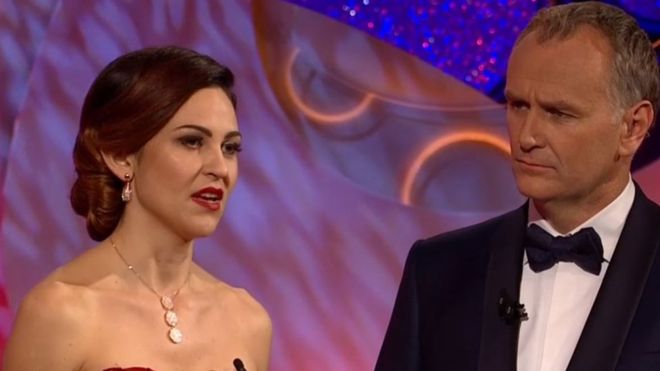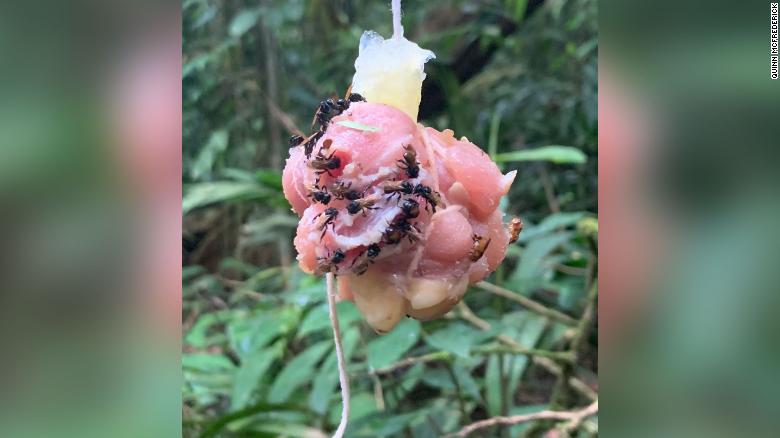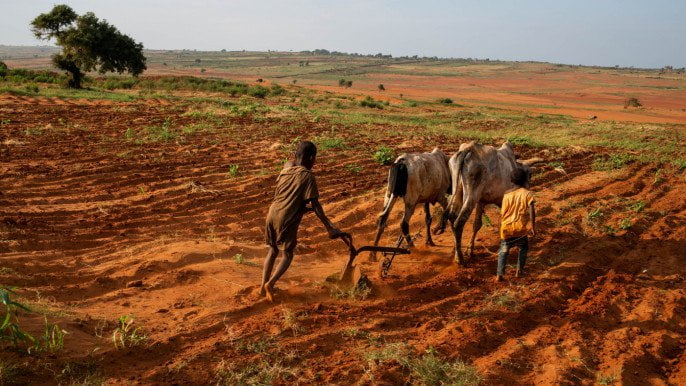

The Rose of Tralee, the Republic of Ireland’s long-running beauty pageant, is not usually a platform for thorny issues.
But, this week, it became the unlikely battleground in Ireland’s ongoing debate over abortion legislation.
Brianna Perkins, the Sydney Rose, sparked the controversy with comments she made live on television to hundreds of thousands of viewers last Monday night.
“I think it is time to give women a say on their own reproductive rights,” she told presenter Dáithí Ó Sé.
Her words were unexpected for the Rose of Tralee, a quintessentially Irish tradition that is probably best known for being wholesome and wholly unthreatening, and the reaction on social media was immediate and emotional.
“I would love to a see a referendum on the eighth coming up soon. That would be my dream,” Ms Parkins went on.
She was referring to the eighth amendment of Ireland’s constitution.
The amendment, introduced in 1983, enshrines that the state “acknowledges the right to life of the unborn and, with due regard to the equal right to life of the mother, guarantees… by its laws to defend and vindicate that right”.
Discrimination
The amendment is seen as the foundation of Ireland’s strict anti-abortion laws, which have been under scrutiny in the past few years amid a series of high profile cases.
 Image copyrightAISLING BEA
Image copyrightAISLING BEAIn 2012, 31-year-old Savita Halappavnavar died after being refused an abortion at a Galway hospital. Following her death, an amendment to the law allowed for abortion when the life of the mother is in danger.
Since then, the controversy over the eighth amendment – and abortion laws – has gathered momentum, with calls for a referendum under the slogan ‘Repeal the 8th’.
A poll in the Irish Times in July found that two-thirds of voters were in favour of repealing the eighth amendment in cases of rape and fatal foetal abnormalities.
Last week, the twitter account @TwoWomenTravel created headlines when it documented the journey of a pregnant woman who travelled with her friend to the UK for an abortion – the UK government says more than 165,000 women travelled to the UK from Ireland for an abortion between 1980 and 2015.
And, while #RepealThe8th has trended online, so has #ProtectThe8th, after a pro-life protest in Cork.
Ms Parkins, a journalist with Australian broadcaster ABC, says she was unaware of the impact her comments would have but was proud of herself for making them.
“For all the platitudes about respecting women I think it is time for the festival – and myself – to live up to what we’ve been saying about empowerment,” she wrote in an article for the Irish Times.
“It takes a couple of seconds of sweaty bravery, but I walk off stage proud of myself.”
Within hours, #SydneyRose was trending in Ireland on Twitter, with many supporting her stance and praising her for her comments.
Among those were Graham Linehan, the co-creator of hit sitcom Father Ted that once poked fun at the Rose of Tralee with its own spoof version, called the Lovely Girls Contest. Linehan is a vocal supporter of ‘Repeal the 8th’.
Others have expressed unease at the pageant becoming a platform for political views.
David Quinn, a columnist and director of Catholic advocacy group the Iona Institute,wrote in the Irish Independent that “politics should be left out of the Rose of Tralee”.
“Politics by its nature is divisive which is why, contrary to the opinion of political obsessives, some spaces should be free of it. The Rose of Tralee ought to be one of them.”
‘Time for change’
Breda O’Brien, a columnist with the Irish Times, wrote that the pageant was meant to unite and entertain and that politicising it was divisive.
It’s a view that Ms Parkins rejects.
“I don’t know why a girl in a ball gown and sash repeating the same thing that Ireland’s women’s-rights campaigners have been saying for decades has made such an impact,” she said.
“I stand by the festival and I believe it’s time for it to change.
“If it doesn’t accept that women who enter will want to have political opinions then it risks being on the wrong side of history.”
And, despite the furore, she later tweeted her support for the event.
“I want to make clear I still love the Rose of Tralee. Being a Rose gave me confidence to do what I did.”
[Source:-BBC]





